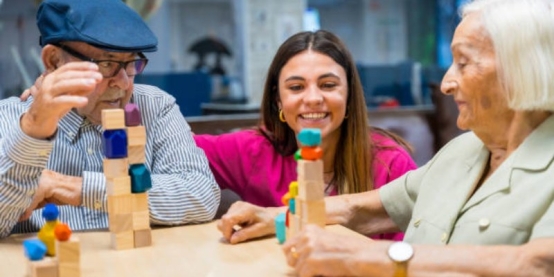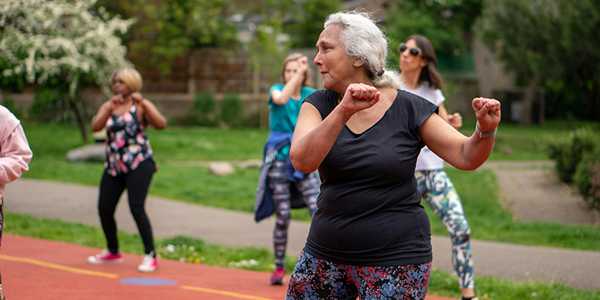Memory care is a special type of long-term care for people with memory problems like Alzheimer's disease or other forms of dementia. Many families believe that regular nursing homes are sufficient, but that is not always the case. People with memory loss often require a safe environment, skilled caregivers, and engaging activities that help them stay calm and healthy.
Why Choosing the Right Facility Matters
It is not easy to see a loved one forget names, faces, and places. But pretending it is not happening does more harm than good. Many older adults with severe memory loss get hurt because they wander off or forget simple things like turning off the stove. A good memory care facility should provide security and medical assistance at times.

A poor choice can do more damage than staying at home. Some places promise too much but fail to deliver on their promises. Not every fancy building or big name means proper care. Families need to ask the right questions, visit in person, and check facts.
One ominous sign is staff who do not answer questions. Another red flag is a place that does not let families visit freely. Good care does not hide behind locked doors; it uses them only to keep residents safe, not to keep families out.
Location and Safety Features
When considering a memory care home, consider its proximity to family. Visits help seniors feel loved and safe. Long drives can deter families from visiting less often. Choose a place that makes visits easy.
Also, look for safety. Good memory care units have locked doors to prevent wandering, clear signs on walls to help residents find their way, and enough staff to watch everyone. Well-designed rooms, vast halls, handrails, and emergency buttons should be standard.
Caregivers and Staff Training
Trained staff is a must. Some places hire people without the right skills just to cut costs. Proper memory care staff must know how to deal with memory loss, confusion, and sudden mood changes. They should know how to calm down a resident who forgets where they are or gets scared at night.
Ask about staff training. How often do they train? Do they know first aid? How do they handle sudden health problems? Watch how staff talk to residents. Are they kind, patient, and respectful? Reasonable care is not just feeding and bathing. It means helping people keep their dignity even when they forget everything else.
Medical Support and Emergency Care
Memory care often involves medical care as well. Many residents require assistance with daily tasks such as taking medicines, bathing, dressing, or eating. Some have other health problems like diabetes or high blood pressure. A good facility must have nurses on duty and doctors on call.

Ask if there is a plan for emergencies. Is a nurse available on-site at all times? How far is the nearest hospital? Knowing this gives families peace of mind. To learn how senior facilities handle medical emergencies, the National Institute on Ageing provides helpful information.
Activities and Social Life
People with dementia should not stay in bed all day. Isolation makes memory loss worse. Good memory care homes offer activities such as music, art, gardening, or gentle exercise. These keep the mind active and lift the mood.
Look at the daily schedule. Are there activities for all stages of memory loss? Is there outdoor space for walks? Do caregivers encourage residents to participate, or do they leave them to their own devices? Reasonable care means giving seniors a reason to wake up and smile.
Food and Nutrition
Good meals are part of reasonable care. Some residents forget to eat or do not want to eat alone. Others need soft foods or special diets. A good facility must serve balanced meals and assist residents in eating when they are unable to do so themselves.
Check the menu. Is the food fresh and healthy? Can families see the kitchen? Are special diets possible? Good homes should offer choices and watch for signs of weight loss or dehydration.
Cost and Payment Options
Memory care can cost a lot. Costs depend on your location, the level of care required, and the specific services included. Some places ask for a flat monthly fee. Others add extra charges for special services.
Families should ask for clear cost breakdowns. Do not just look at the base fee. Check if things like personal care, laundry, or transport cost extra. Ask if insurance or Medicaid can cover part of the cost.
Questions to Ask Before Choosing
Always visit in person. Discuss with the staff and other families, if possible. Some good questions include:
What is the staff-to-resident ratio?
How do they handle emergencies?
How do they keep residents safe?
How do they manage sudden behaviour changes?
Are families updated about the resident’s health?
Can residents see their doctors?
Families should trust what they see and feel. If a place does not feel right, move on. Do not fall for sales talk. A clean lobby means little if care behind closed doors is poor.

Support for Families
Memory care is not only for the person who needs it; it's also for their family. It also helps the family. Many homes have support groups for families. These help people understand dementia, share stories, and feel less alone.
Families should look for a place that gives regular updates. Some facilities hold family meetings, share care plans, and talk about any changes. This fosters trust and provides families with peace of mind.
Choosing With Care
Choosing a memory care facility is not something to rush. It needs research, visits, and asking the hard questions. Reasonable care should keep loved ones safe, respected, and well cared for every day. The right place is one where the resident can live with some comfort and dignity, even when memories fade.



